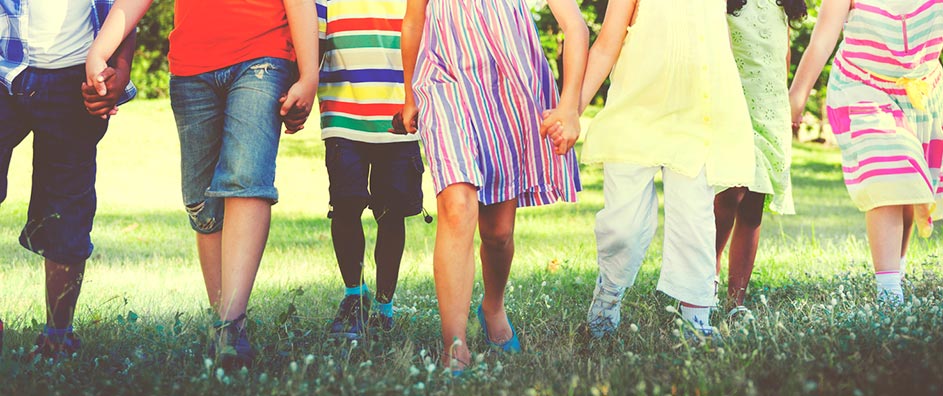In the exploration of Bahá’í teachings, the concept of racial unity emerges as a profound reflection of the consummation of human evolution. This notion is interwoven with the spiritual, ethical, and social dynamics that Bahá’ís believe are essential for achieving a harmonious global society. This examination offers an extensive overview of how racial unity is perceived within the Bahá’í framework, detailing its significance, implications, and the transformative potential inherent in its realization.
At the very heart of Bahá’í philosophy lies the assertion of the oneness of humanity. This principle serves as a foundational pillar upon which many teachings are built. The Bahá’í Faith posits that the evolution of human consciousness is inherently linked to the collective progress of the human race towards unity. This evolution is not merely biological but is also intellectual and spiritual. Racial unity, therefore, is seen as an essential element of this evolutionary trajectory, where diverse cultures, ethnicities, and backgrounds come together to form a unified global community.
The historical context of racial divisions cannot be overlooked. Centuries of prejudice, discrimination, and oppression have fostered a fragmented understanding of human identity. The Bahá’í teachings challenge these entrenched conceptions by advocating for a recognition of the shared attributes that bind humanity. This call transcends superficial differences, urging individuals to acknowledge their common spiritual heritage and innate dignity. The Bahá’í viewpoint illustrates how humanity’s greatest achievements have emerged from collaboration and interconnectedness rather than division.
Bahá’u’lláh, the founder of the Bahá’í Faith, emphasized the necessity of eradicating racial prejudice. He articulated this imperative during a time when such sentiments were pervasive, advocating for a revolutionary shift in perception. His writings exhort humanity to look beyond the superficial markers of racial identity and embrace a collective vision for the future. The exhortation to eliminate racial prejudices compels individuals and communities to engage in self-reflection and to confront their biases while fostering inclusivity in societal structures.
The process of achieving racial unity is incremental and multifaceted. It encompasses education, dialogue, and active engagement in social justice initiatives. Education serves as a poignant vehicle for transformation, enabling individuals to confront their misconceptions and embrace a more profound understanding of the interconnectedness of all people. Efforts such as workshops, community gatherings, and interfaith dialogues are pivotal in fostering a safe space for open discussions about race and unity, allowing participants to exchange experiences and cultivate empathy.
Within the Bahá’í framework, unity is intrinsically linked to justice. The pursuit of racial unity necessitates a commitment to social justice, which calls for the dismantling of systemic inequalities and the promotion of equitable opportunities for all. Bahá’ís believe that the establishment of a just society is vital for the realization of racial unity, as justice serves as a catalyst for healing and reconciliation. This dimension of the Bahá’í teaching reveals the importance of not only advocating for racial harmony but also working diligently to rectify injustices that affect marginalized communities.
Art and culture play foundational roles in the movement toward racial unity as well. Music, literature, and visual arts have the capacity to transcend cultural boundaries and to convey the shared struggles, hopes, and aspirations of humanity. Bahá’í communities around the world increasingly recognize the significance of creative expression in articulating the universal quest for unity. Cultural exchanges, artistic collaborations, and initiatives that celebrate diversity can strengthen bonds between different ethnicities, fostering understanding and appreciation for varied cultural narratives.
Moreover, the concept of racial unity extends beyond the individual or community; it is a global imperative. The Bahá’í teachings call for a collective response to the challenges posed by racism, nationalism, and other forms of prejudice. Acknowledging our interdependence demands that every individual view themselves as part of a larger human family, one that thrives on the contributions of its myriad constituents. International cooperation and solidarity are essential in addressing systemic injustices that perpetuate division and discord.
The consummation of human evolution, as envisioned in Bahá’í teachings, implies not only the recognition of racial unity as an end in itself but also as a pathway to a more profound spiritual awakening. When individuals embrace the oneness of humanity, they engage in a transformative journey that elevates their consciousness and cultivates a deeper sense of purpose. This journey requires an unwavering commitment to the principles of love, compassion, and service, serving as a beacon of light for others to follow.
In conclusion, the Bahá’í teachings on racial unity present a powerful narrative that outlines the necessity of collective human evolution. As society grapples with the complexities of race and identity, the principles espoused within this faith offer a profound template for understanding and action. The call for racial unity is not merely an abstract ideal; it is an urgent and actionable mandate that encompasses education, justice, art, and global cooperation. Through these lenses, the Bahá’í framework seeks to illuminate the potential for humanity to transcend its divisions and to collectively embrace a future characterized by unity and peace. The consummation of human evolution is to be found in the embrace of our common humanity—a vision grounded in love, respect, and the unwavering belief in the oneness of all people.
